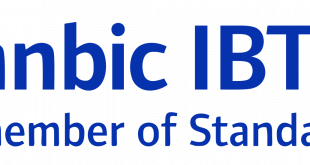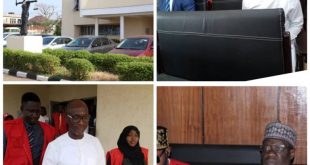
Mrs. Boma Alabi, a leading commercial lawyer and seasoned litigator. former President of Commonwealth Lawyers Association, CLA.
In this interview, she shares her views on the challenges of law practice in the country, the fight against corruption, globalization of legal services and sundry issues.
What is your appraisal of the anti-corruption war of the Federal Government?
All said and done, it is laudable and must be supported,however, as the saying goes, no pain no gain’ the Federal Government must be ready to do the work to achieve the result.
What do you mean by this?
That means painstaking investigations, equipping and training their personnel in the anti graft agencies and raising awareness amongst the citizens to ensure their buy-in and active co-operation. Attempting to take a short cut such as the recent ‘Ex Parte’ order forfeiting funds belonging to depositors without BVN, is an example of a short cut that will lead to an arid desert which can never be fruitful.
How do you appropriate monies belonging to citizens because they have not complied with a CBN directive?
It simply beggars belief! I am an administrator in an Estate that has not been settled over 20 after. So, if there are bank accounts belonging to the deceased, the beneficiaries will lose their entitlement because they could not wake up the dead to be finger printed? What about Nigerians in diaspora with bank accounts in Nigeria? Many are not in touch with Nigeria and unaware of these directives.
There are so many different scenarios that can result in the lack of a BVN on an account through no fault of the bank or the depositor.
There was public outcry recently that the Economic and Financial Crimes Commission, EFCC, lost some high profile cases in the anti corruption war, how do you think we can strengthen the war to ensure victory over corruption?
The outcome shows that the EFCC may have rushed to Court without taking their time to investigate and prepare for the cases.
Strategic preparation is the key to victory in any litigation, including prosecution for financial crimes. For instance, the EFCC generally will charge the accused with numerous counts of various offences at the same time. As you well know, the onus is on them to prove each and every count but I would approach it differently.
There have been calls for States Attorneys- General and other prosecutorial agencies of states to take overprosecution of corrupt politicians while the EFCC will focus on the prosecution of those who commit financial crimes as envisaged by the EFCC Act. What is your reaction to this?
Corrupt politicians are also more often than not, accused of financial crimes and therefore come under the purview of the EFCC, when, as it invariably does, the alleged act of corruption involves money. I don’t think the issue is who prosecutes, rather it is how well they prepare their cases before rushing to Court. Presumably, legal opinions are sought prior to the decision to prosecute. That’s usually the case with prosecutions initiated by the Attorney General’s office, at least at state level where I assist with prosecution. If that is the case, a lawyer from the Ministry of Justice usually provides his Legal Opinion. Naturally, the MoJ lawyer is often not a subject matter expert and therefore, not fully conversant with all the factual elements required to succeed. It is important that in complex financial transactions, they enlist the help of subject matter experts beforehand.
You can be assured that the defence, usually much better funded, will have subject matter experts working with the lawyers as consultants and also providing expert opinion where necessary. Funding is key to success. The EFCC has to be better funded to enable the agency pay counsel.
What do you consider to be the greatest challenge facing commercial law practitioners in the country?
The greatest challenge is the economy. We are not insulated from the effects of the recession as commercial lawyers. When business slows down due to the various factors that we know led to this recession, it impacts on the number of transactions and therefore on the transaction advisers too.
How do we strengthen the whistle blowing policy to make it more efficient and effective?
A robust whistle blower protection scheme in addition to the cash incentive will increase confidence in the system. And that’s what we need! The British police get some of the best results in the world and that is due to the confidence the citizens have in their local Bobby. They know that he will not reveal his sources and if need be, will go to any length to protect the whistle blower. That confidence means that people are eager to assist the police if they are aware of any criminal activity. This is where we need to be, where
Nigerians feel confident enough to approach the police to report any criminal activity around them, not just corruption in high places.
How do you think we can restructure Nigeria within the ambit of the law?
Well, what is it that we wish to restructure in the first place and what do we mean by restructuring? This is a new buzz word for politicians and I really think we should examine this very critically before jumping on the band wagon. The three tiers of government have a lot of independence from each other, it is up to each tier to protect its constitutional powers from encroachment by another, and we will find if this is done, that what we actually have in place at the moment is more than sufficient. Recently, Lagos state, regained authority over its waterways from the National Inland Water Ways Authority (NIWA) by pursuing a claim on behalf of citizens against what was effectively double taxation, this is an example of what can be achieved within the structure as it is. If we restructure, whatever this means, and do not implement, there still would not be much progress.
The Judiciary had been generally referred to as the last hope of the common man. Can you honestly say that about Nigerian judiciary today, what is the solution and or way out?
The judiciary is still the last hope of the common man, no question about that. I am very encouraged by the changes the current CJN has instituted. We are already seeing the results of these specialized courts. The corruption trials are moving along much faster, as criminal matters. I am an active practitioner in the courts across the country on a very regular basis and I have to say that the judiciary has been much maligned. Our Judges work tirelessly to dispense justice at the expense of their health and well being in a lot of cases.
The working conditions are abysmal.
How do we correct this?
We need to invest more in this very important arm of government and the Bar should advocate for better funding for the Courts.
We are there every day, we see the decaying infrastructure, we see the overworked registry staff and we say nothing. Rather, we prefer to stand outside the court rooms in our wigs and gowns advocating our cases before the media. It’s atrocious and sadly seems to have become the norm in this jurisdiction. In England, you would never hear a Barrister who is directly involved, comment on a case to the media whilst it is sub-judice. And even after that matter is concluded, the only comment would be to read a statement on behalf of the client.
 DailyrecordNg …Nigeria's hottest news blog
DailyrecordNg …Nigeria's hottest news blog







